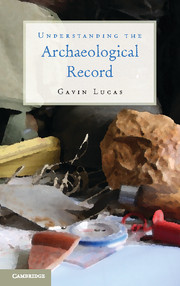3 - Formation Theory
Published online by Cambridge University Press: 05 June 2012
Summary
‘Formation theory’ is a term I use here to cover a variety of approaches which address the issue of formation processes and the archaeological record. It is important to distinguish formation theory from other approaches which overlap in subject matter, particularly source criticism and sampling theory (see Chapter 2). Although these latter approaches acknowledge formation processes, their general perspective and starting point is quite different, as outlined in the previous chapter. One way of characterizing this difference is in terms of temporal outlook – do we look at time backwards (from the present to the past) or forwards (the present as the future of the past)? Source criticism, sampling theory, and formation theory all view the archaeological record as a contemporary phenomenon, but they do so from quite different perspectives. One way of expressing this is through the dominant concepts deployed. Thus, source criticism and sampling theory start from the concept of incompleteness and try to fill in the gaps, whereas formation theory starts from the concept of a living or dynamic context and tries to understand its transformation into a static context. Formation theory, in a sense, thinks of the archaeological record as the end point, as the future of a past present, whereas source criticism and sampling theory largely view it as the starting point, the fragmented present of a past totality. This is what I meant by looking at time backwards or forwards. This difference is expressed in the nature of the methodological work associated with these respective approaches; for example, the study of artifact use-life and discard rates in the case of formation theory, and the importance of state of research or representivity in the case of source criticism and sampling theory. However, I admit the difference between the orientations is perhaps subtle and not always as clear as I have portrayed it; moreover, other factors weigh equally, such as different traditions (North America versus Europe) or even different perceptions of the scientific nature of archaeology (sciences versus humanities).
- Type
- Chapter
- Information
- Understanding the Archaeological Record , pp. 74 - 123Publisher: Cambridge University PressPrint publication year: 2012



